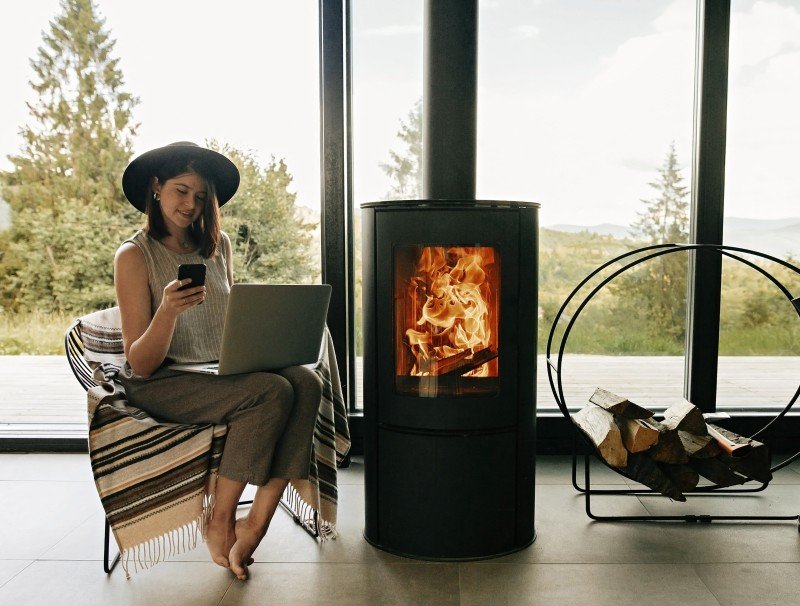Diese Unternehmen hat keine aktiven Jobs
0 Review
Rate This Company ( No reviews yet )
Etwas über Unternehmen
See What Fireplaces And Stoves Tricks The Celebs Are Using

The Comprehensive Guide to Fireplaces and Stoves
Fireplaces and stoves have actually been essential to human civilization for centuries, serving as a source of heat, light, and convenience. These home appliances come in numerous types and have actually progressed over the years, catering to varied preferences and technological advancements. This short article provides an informative summary of Fireplaces And Stoves [Akropolistravel blog article], highlighting their types, advantages, maintenance pointers, and installation factors to consider.
Kinds of Fireplaces
The world of fireplaces is abundant and differed. Here are the most typical types:
-
Wood-Burning Fireplaces:
- Traditional and charming.
- Needs seasoned wood and regular maintenance.
- Produces an enjoyable aroma and crackling noise.
-
Gas Fireplaces:
- Offer benefit and ease of usage.
- Readily available in vented and vent-free alternatives.
- More efficient and cleaner than wood-burning choices.
-
Electric Fireplaces:
- Provide ambiance without the requirement for a chimney.
- User-friendly with remote control alternatives.
- Can be utilized as a supplemental heat source.
-
Pellet Stoves:
- Use compressed wood pellets as fuel.
- Highly efficient and environmentally friendly.
- Often equipped with thermostats for temperature level control.
-
Ethanol Fireplaces:
- Utilize bioethanol fuel, making them portable.
- Do not need venting, which permits versatile placement.
- Produce a sensible flame with minimal smoke.
-
Outdoor Fireplaces:
- Designed for outdoor settings; can be wood or gas-burning.
- Great for amusing and enhancing yard aesthetic appeals.
- Typically built from stone, brick, or metal.
Advantages of Fireplaces and Stoves
Integrating a fireplace or stove into a home provides various benefits:
- Aesthetic Appeal: Fireplaces act as striking focal points in any space, adding heat and character to home decor.
- Increased Property Value: Homes with practical fireplaces tend to have higher resale values.
- Energy Efficiency: Modern fireplaces and stoves are designed to be more energy-efficient, which can lead to minimized heating expenses.
- Backup Heating Source: In case of power failures, wood-burning and gas fireplaces can serve as essential heating sources.
- Versatile Heating Solutions: Different kinds of fireplaces cater to numerous heating requirements and lifestyles, from cozy atmosphere to efficient heating.
| Type of Fireplace/Stove | Fuel Source | Efficiency Rating | Maintenance Level |
|---|---|---|---|
| Wood-Burning | Wood | Moderate | High |
| Gas | Natural gas/LP | High | Low |
| Electric | Electrical power | High | Very Low |
| Pellet | Wood pellets | High | Moderate |
| Ethanol | Bioethanol | Moderate | Low |
| Outdoor | Wood or gas | Moderate | Varies |
Upkeep Tips
Proper maintenance extends the life of fireplaces and stoves, guaranteeing security and efficiency. Here are some essential tips:
-
Regular Cleaning:
- Wood-burning fireplaces should be cleaned up after a full season of usage to eliminate soot and creosote.
- Gas fireplaces require periodic evaluation of the burner and vents.
-
Routine Inspections:
- Have chimney sweeper perform annual assessments to determine clogs or structural damage.
- Check the seals and gaskets on gas systems to avoid leaks.
-
Fire Safety:
- Install smoke and carbon monoxide gas detectors in homes with fireplaces or stoves.
- Keep a fire extinguisher near the fireplace or range for emergency situations.
-
Usage Quality Fuel:
- For wood-burning systems, always utilize skilled wood; avoid treated or painted wood.
- When using pellets, ensure they are stored appropriately to prevent wetness absorption.
-
Handle Airflow:
- Keep vents and ducts clear to promote effective ventilation and air flow.
- Consider using glass doors or screens to minimize debris and ash in the home.
Installation Considerations
Installing a fireplace or range requires cautious consideration of several aspects:
-
Location:
- Choose a location that permits for correct clearance and ventilation.
- Consider the design of your home and the benefit of natural heat distribution.
-
Building Regulations and Permits:
- Check local policies regarding setups and necessary permits.
- Engage a professional to ensure compliance with security requirements.
-
Fuel Type:
- Evaluate your fuel options based upon availability, cost, and environmental effect.
- If selecting gas, ensure existing gas lines can accommodate the brand-new appliance.
-
Ventilation:
- Proper venting is vital for safety and efficiency, especially for gas and wood-burning systems.
- Seek advice from an expert to figure out the best venting option.
-
Visual Consideration:
- Select a design that matches your home’s interior.
- Consider mantels, surround materials, and colors that match your decor.
FAQs
What is the very best kind of fireplace for heating?
Gas fireplaces are typically more efficient for heating, while wood-burning fireplaces provide more ambient heat.
How often should I clean my fireplace?
Wood-burning fireplaces ought to be cleaned a minimum of as soon as a year, while gas fireplaces require less frequent attention depending upon usage.
Can I set up a fireplace myself?
While some property owners may try DIY setup, it is suggested to work with an expert to ensure safety and compliance with building regulations.
Are electric fireplaces efficient?
Yes, electric fireplaces are very efficient and can function as efficient supplemental heating sources, specifically in smaller sized spaces.
What is the lifespan of a fireplace?
The lifespan of a fireplace varies depending upon the product, type, and upkeep; nevertheless, a well-maintained wood-burning fireplace can last over 30 years.
Fireplaces and stoves remain timeless features in homes, providing warmth and atmosphere. Comprehending the various types, advantages, and upkeep requirements can help property owners make informed decisions about setup and care. With mindful preparation and routine maintenance, these home appliances can boost both the comfort and value of a home for many years to come.

